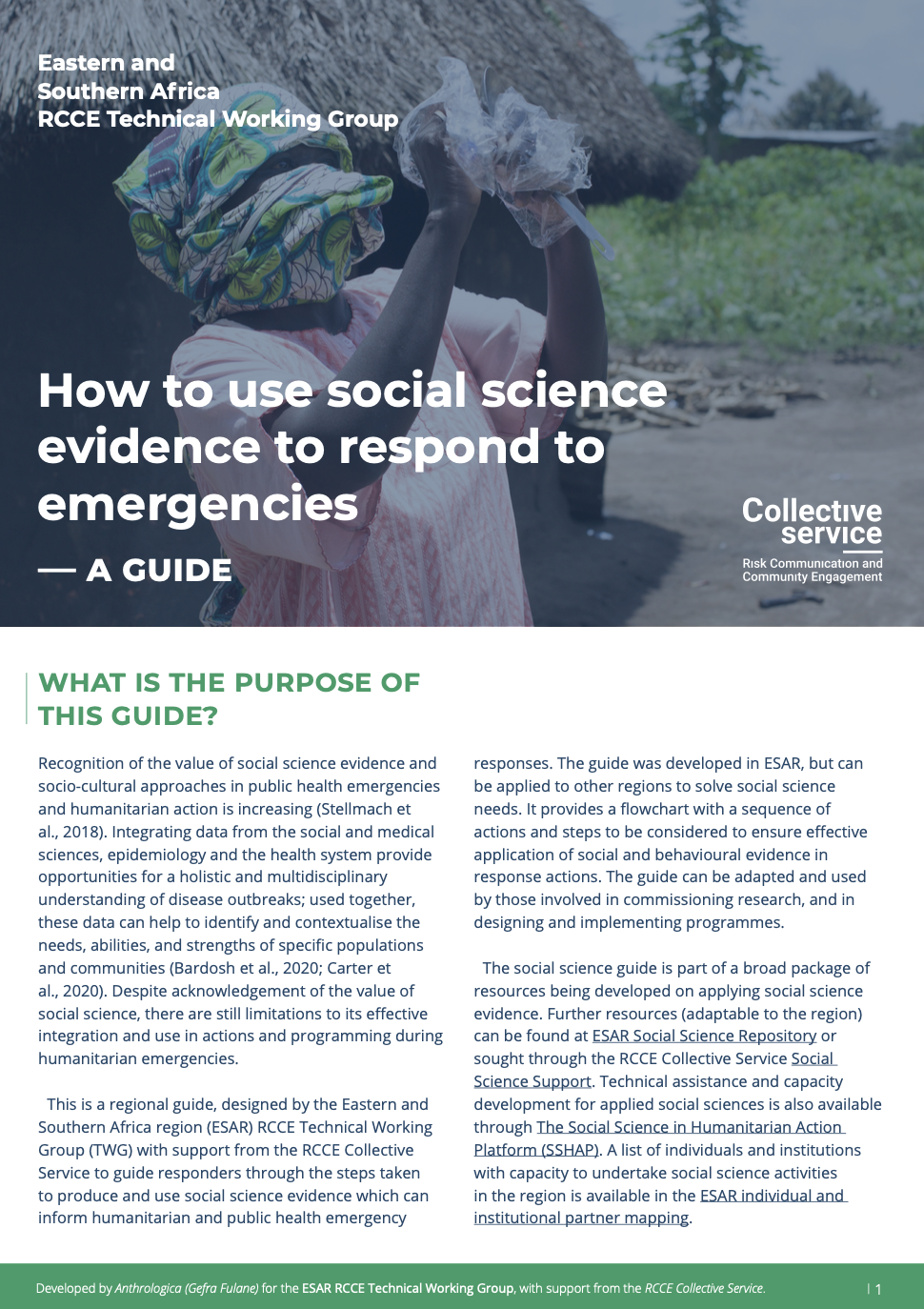How to use social science evidence to respond to emergencies
Description
Recognition of the value of social science evidence and socio-cultural approaches in public health emergencies and humanitarian action is increasing (Stellmach et al., 2018). Integrating data from the social and medical sciences, epidemiology and the health system provide opportunities for a holistic and multidisciplinary understanding of disease outbreaks; used together, these data can help to identify and contextualise the needs, abilities, and strengths of specific populations and communities (Bardosh et al., 2020; Carter et al., 2020). Despite acknowledgement of the value of social science, there are still limitations to its effective integration and use in actions and programming during humanitarian emergencies.
This is a regional guide, designed by the Eastern and Southern Africa region (ESAR) RCCE Technical Working Group (TWG) with support from the RCCE Collective Service to guide responders through the steps taken to produce and use social science evidence which can inform humanitarian and public health emergency responses. The guide was developed in ESAR, but can be applied to other regions to solve social science needs. It provides a flowchart with a sequence of actions and steps to be considered to ensure effective application of social and behavioural evidence in response actions. The guide can be adapted and used by those involved in commissioning research, and in designing and implementing programmes.
The social science guide is part of a broad package of resources being developed on applying social science evidence. Further resources (adaptable to the region) can be found at ESAR Social Science Repository or sought through the RCCE Collective Service Social Science Support. Technical assistance and capacity development for applied social sciences is also available through The Social Science in Humanitarian Action Platform (SSHAP). A list of individuals and institutions with capacity to undertake social science activities in the region is available in the ESAR individual and institutional partner mapping.
Additional languages

DETAILS
Publication
Authors
Emergency
Language
Region
Keywords
